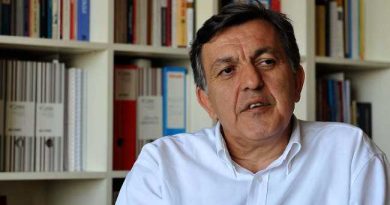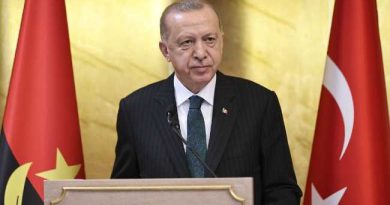High-ranking retired soldiers detained in Turkey as part of a probe into post-modern coup on February 28th 1997
Several high-ranking retired soldiers, including former Deputy Chief of General Staff Gen. Çevik Bir, were detained yesterday as part of a probe into the “post-modern coup,” in the latest crackdown on active duty and retired members of the Turkish Armed Forces suspected of involvement in past coups.
Police raided 31 addresses in Istanbul, Ankara, Çanakkale, Eskişehir and Niğde as a part of an investigation into the “February 28 process,” which resulted in the resignation of then-Prime Minister Necmettin Erbakan, the Ankara Public Prosecutor’s Office said in a written statement, adding that the suspects were accused of “attempting to overthrow the government.” Detention orders have been issued for 31 suspects, the statement said, and noted that “two or three of the suspects are abroad.”
Retired four-star general Bir, who was sent to Ankara for interrogation yesterday afternoon, was the deputy chief of General Staff during the Feb. 28 process, when he allegedly sent directives to prosecutors and members of the judiciary on behalf of the General Staff. He was also the mastermind behind the “Western Working Group” (BÇG) established by the military to monitor “anti-secular” activities, according to allegations. Most of those detained are former members of the BÇG, which was later disbanded.
The other retired generals in custody are Abdullah Kılıçarslan, İdris Koralp and Ünal Akbulut.
The “February 28 process” returned to Turkey’s agenda when the trial of Kenan Evren and Tahsin Şahinkaya, the two surviving members of the Sept. 12, 1980 junta, on coup charges began last week. More than 300 retired and active duty soldiers are also in prison pending trial on coup plot charges in the Ergenekon and Balyoz (Sledgehammer) cases.
Speaking recently on the 15th anniversary of the “post-modern coup,” Turkish Prime Minister Recep Tayyip Erdoğan said the masterminds and supporters of the “February 28 Process” would never be forgiven, “even if 1,000 years went by.” He also supported a recent controversial education reform bill on the grounds that it would clear up the remaining traces of the “February 28 process,” including the law that established a compulsory eight-year primary education.
The turbulent process took its name from the Feb. 28, 1997 meeting of the National Security Council (MGK), at which Turkey’s then omnipotent military imposed a series of tough decisions on then-Prime Minister Erbakan, mainly aimed at curbing religious schools and Islamic education in the face of what was perceived at the time as a growing threat to Turkey’s secular system. Backed by the bureaucracy and much of the media, the army kept Erbakan under pressure, forcing him to resign in June. Erbakan’s Welfare Party (RP), to which Erdoğan and current President Abdullah Gül belonged, was outlawed for anti-secular activities several months later.
Bir has also testified previously to Prosecutor Zekeriya Öz within the scope of the Ergenekon investigation. Öz had announced he had received the former general’s testimony in relation to the “February 28 process.” Bir later testified in the “revolutionary headquarters” probe, in which former Police Chief Hanefi Avcı is a suspect, as a victim.
13.04.2012
SOURCE: HDN




